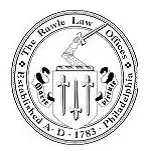In a society in which the escalating frequency of litigation is commonly recognized, there is a significant movement to avoid the time and cost typically associated with a full-blown jury trial through the use of arbitration and other forms of alternative dispute resolution. For this reason, employers are more frequently seeking to include arbitration and similar types of agreements as a term of employment. Whether those agreements are enforceable, however, is not always a certainty.
In a recent decision, the Pennsylvania Superior Court considered an agreement to arbitrate set forth in an employee handbook and ruled that it was not enforceable. In Quiles v. Financial Exchange Co., 2005 PA Super 250; Pa. Super. LEXIS 1596 (Pa. Super. July 6, 2005), plaintiff was hired as a teller by Dollar Financial Group (incorrectly identified in the caption as Financial Exchange Co.) to work in its Allentown, Pennsylvania store in July 2001. About a month later, plaintiff’s store manager gave her an Employee Acknowledgment Form to sign which provided that the plaintiff had received and read the company’s Employee Handbook and she understood and agreed to be bound by its terms. Significantly, the Form made reference to the Handbook’s DISPUTE RESOLUTION PROGRAM and provisions relating to arbitration. However, no details of the program were set forth in the Form. While plaintiff admitted that she signed the form, she claimed that she did so under pressure from her store manager and she never actually received a copy of the Handbook, although she did ask for one.
Plaintiff was subsequently discharged for theft. When she filed suit against Dollar for defamation in the Lehigh County Court of Common Pleas (Allentown), Dollar moved to have the action stayed and the arbitration provision enforced. The trial court denied Dollar’s motion finding that the parties had not "agreed to arbitrate in [a] clear and unmistakable manner." On appeal, the Superior Court affirmed the trial court and determined that there was no meeting of the minds. Thus, an agreement to arbitrate had never been reached. In this regard, the Court noted that plaintiff signed the Acknowledgment Form under pressure; other employees at the store were similarly denied a copy of the Handbook; plaintiff, who was from Puerto Rico, had difficulty with the English language and had limited education; she did not know the meaning of "arbitration"; and she did not have the benefit of counsel before signing the Form.
In reaching its decision, the Superior Court distinguished cases relied upon by Dollar where a party’s failure to read a contract was insufficient to avoid an agreement. In the case before it, plaintiff was never given a copy of the Handbook and therefore, never had an opportunity to read it. The Court also rejected Dollar’s argument that since plaintiff had signed the Acknowledgement Form, she needed a valid defense such as fraud, duress or unconscionability to avoid it. While acknowledging that agreements to arbitrate are favored as a matter of public policy, the Court explained that there must be an agreement in the first instance before issues of enforcement can be considered. In determining whether an agreement to arbitrate exists, courts must "apply the rules of contractual construction, adopting an interpretation that gives paramount importance to the intent of the parties and ascribes the most reasonable and probable, and natural conduct to the parties."
Applying these principles to the facts before it, the Court found that plaintiff, having never received the Handbook or other explanation of the arbitration provision, could not have accepted the terms of that provision. "Without her acceptance, there was no contract formed between the parties and, thus, no grounds to compel arbitration of the present claims." Accordingly, the order of the lower court was affirmed.
Although arbitration provisions are favored by the courts, issues of communication must be considered carefully by employers. As the facts in Quiles make clear, having an employee sign an Acknowledgment Form is not sufficient if steps have not been taken by the employer to ensure that the terms of the arbitration agreement are fully and adequately communicated to the employee. In order for such an agreement to be enforceable, there must be an offer and an acceptance which is both clear and unmistakable indicating mutual assent. In the absence of such assent, an arbitration provision set forth in an employee handbook may not be worth more than the paper it is written on, leaving the employer vulnerable to defending employee claims in a much more costly judicial forum- an outcome originally thought to have been safeguarded against.
The content of this article is intended to provide a general guide to the subject matter. Specialist advice should be sought about your specific circumstances.

